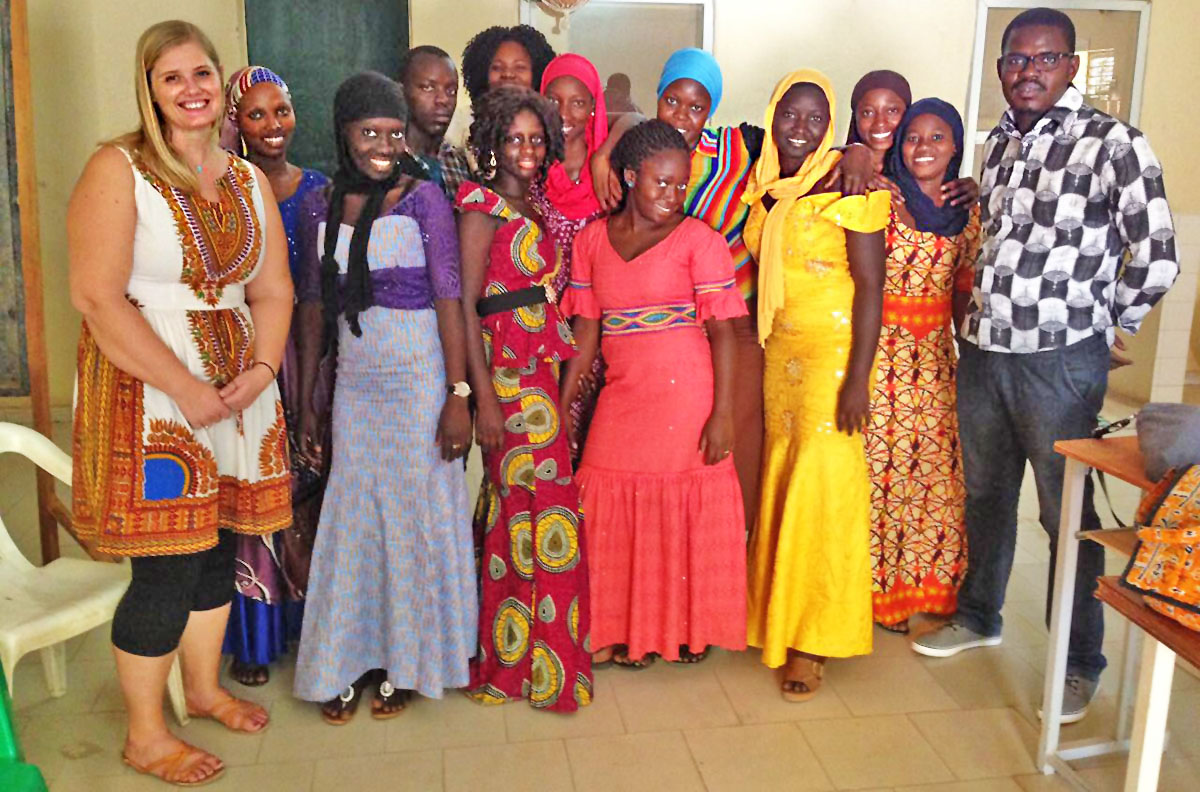
Volunteer Post
Investing in Agriculture Education for a Brighter Senegal
Today’s blog post comes from Chloe Crocker who recently completed her first Farmer-to-Farmer volunteer assignment in Senegal.
Chloe Crocker
As we drive into the Horticulture Initiation Center of Ziguinchor, Senegal, I am greeted by a welcome site—students working alongside instructors in a lush, green, and productive garden. Given the number of people employed in agriculture in countries like Senegal, this is a sight far rarer than it should be. As someone who benefited from programs like 4-H as a young person, I know first-hand the long term benefits of investing in agriculture education.
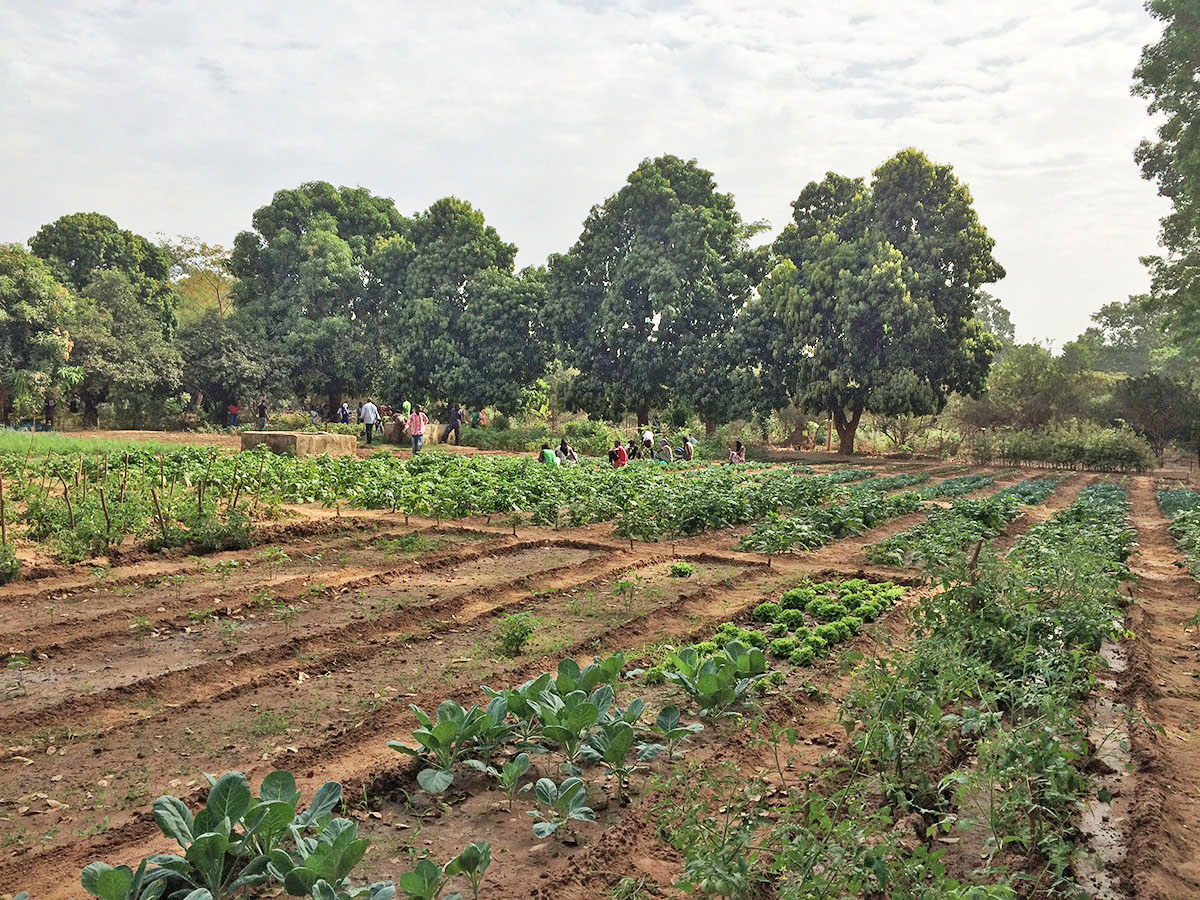
My mission in Senegal was 27 days, working with 3 different agriculture and vocational training institutions to assess their level of work thus far and lay out a 5-year strategic road map to improve their work, their student’s education and employability, and their impact on the surrounding communities. Having spent the past 5 years working with agriculture, life skills, and vocational skills training across Africa, I was excited to see a focused effort by Winrock and Farmer-to-Farmer to invest here as well.
Formal agriculture education originated in the U.S. when the extension service had trouble getting farmers to adopt new practices. Youth, as early adopters of innovations have less to lose, and more to gain by trying out new methods and technologies. The same is true today around the world. For many in the developing world, “farmer” is not a profession or occupation, it is a socio-economic status. You farm because you have nothing else and can do nothing else. However, we see this mindset changing with young people who see farming as a business, a science, and a profession. During one of the visioning activities we conducted, a student identified the opportunity and need he saw for agriculture education this way: “The government and international organizations are always talking about 2 critical issues: youth employment and food security. The education I am receiving now is the solution to both of those.”
Through the SWOT analysis and interviews we conducted with staff, teachers, and students, we saw some of the effects of this negative perception manifested in areas like: recruiting expert teaching staff, sourcing educational resources, accessing adequate funding, and student employment upon graduation. In spite of these challenges, again and again, we saw examples of people going above and beyond to support their schools. Teachers talked about visiting student’s homes when they noticed they seemed to be struggling. Students talked about the goals and aspirations that their education would enable them to achieve. Administrators talked about their dedication to find a way, regardless of a lack of funding and resources.
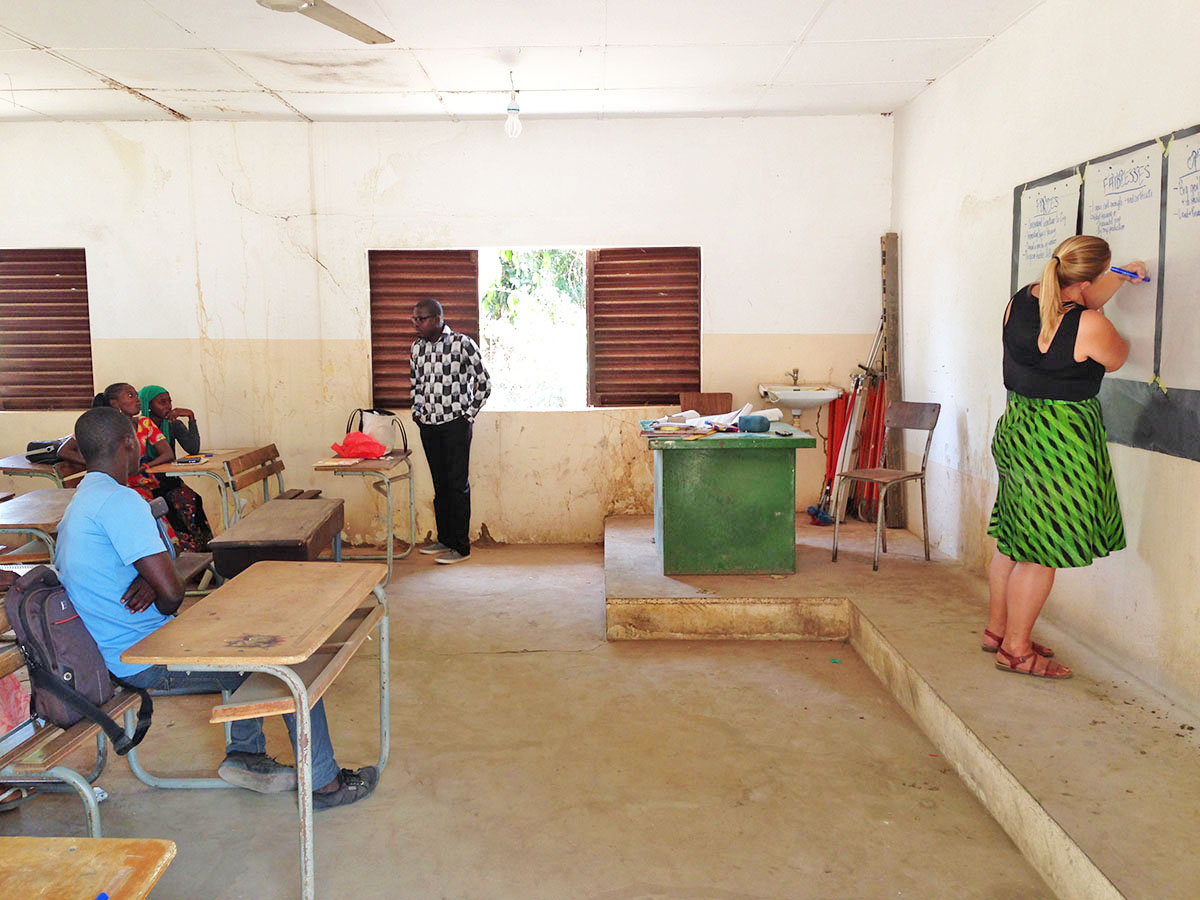
Utilizing all the findings of surveys, interviews, and analysis, we moved forward with creating, objectives, strategies, and activities that will help the school to achieve their mission. And with missions like “To be a center of excellence, training the next generation of farmers and impacting the skills of current farmers in our community,” who wouldn’t be motivated? The result of all the assessments, group discussions, and planning were strategies that would move the schools and agriculture education forward in their communities and Senegal.
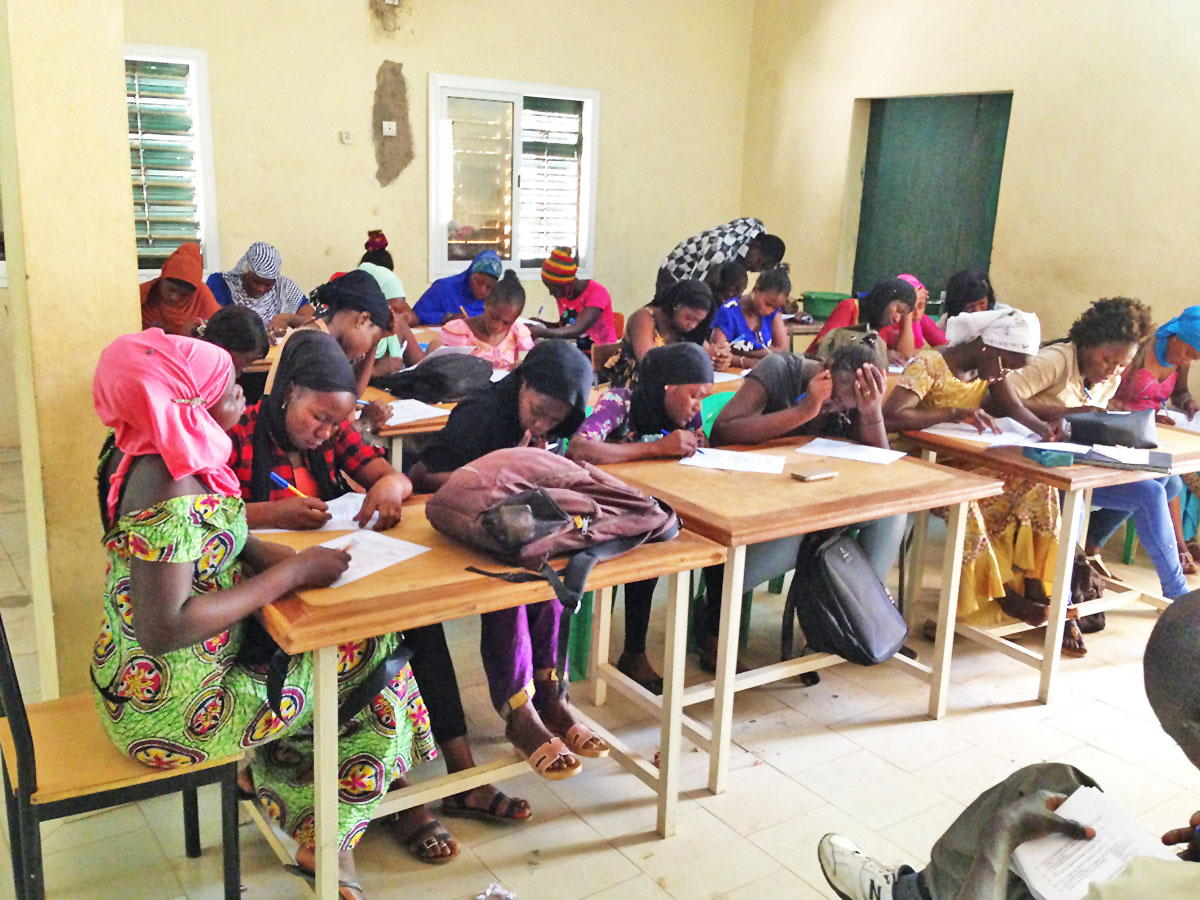
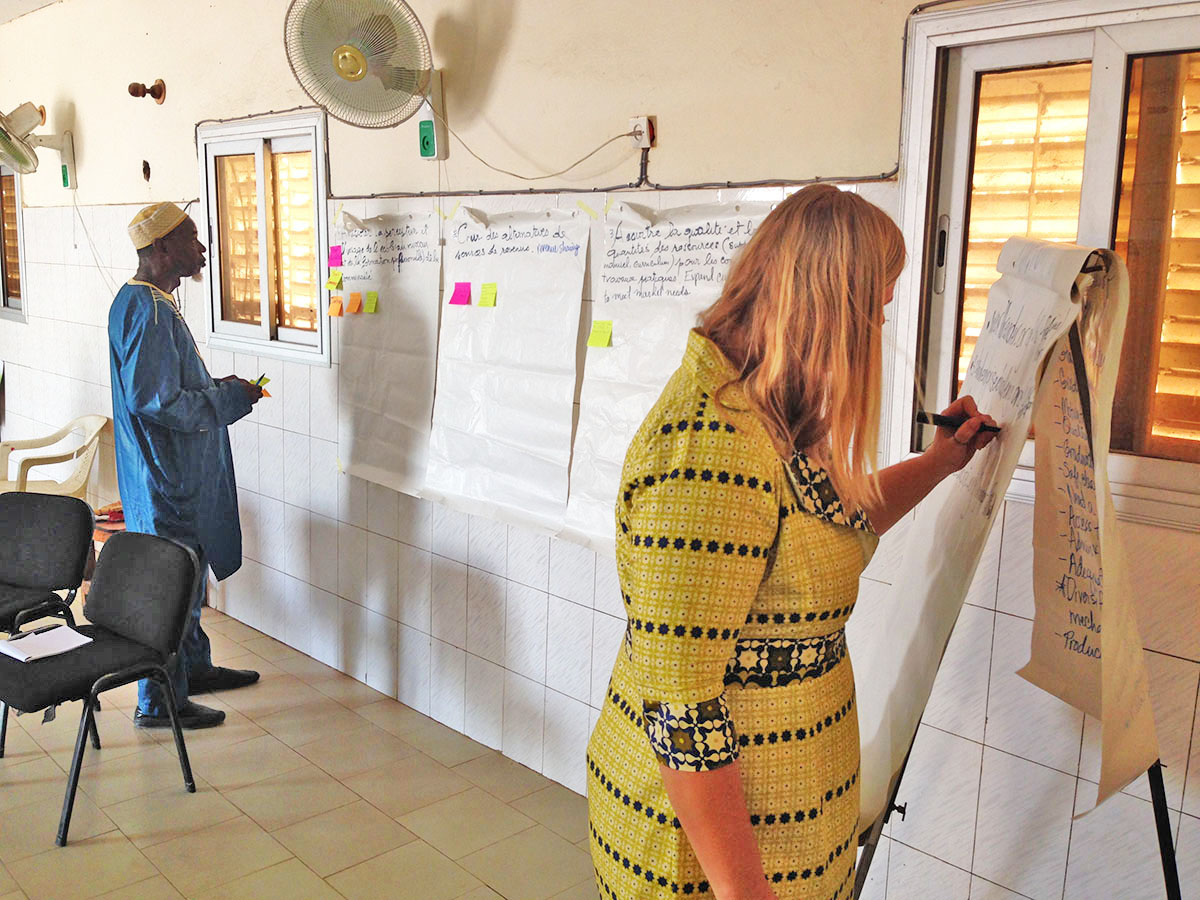
Schools were eager to identify ways that they cannot just improve their work, but network and share with other institutions to create and improve educational resources. They want to find ways to engage with the community at large to both gain support for their students, as well as improve agriculture practices and perceptions around them. They want to train their students to be leaders and change-makers, business people and innovators, as well as farmers.

The dedication and commitment that school managers, teachers, and students exhibited show a glimpse into the future of Senegal’s agriculture sector. By investing in the skills and knowledge of young people, Senegal and the surrounding countries will reap the benefits of a trained and dedicated workforce of agriculture businesspeople, leaders, and decision makers. It was an honor to work with these schools and the amazing Winrock support staff to contribute to the realization of this vision.
